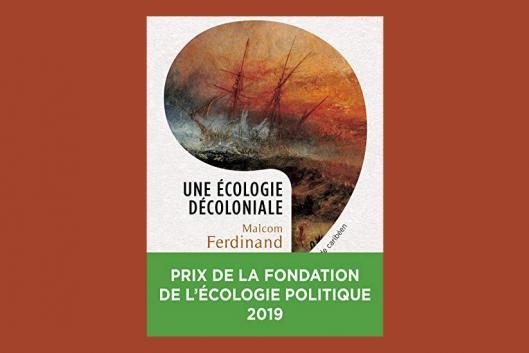The book, Une écologie décoloniale' (a decolonial ecology), written by Malcom Ferdinand—who was born and raised in Martinique, an island in the Caribbean Sea with the status of a region and overseas department of France—presents an analysis of how we cannot understand the current environmental crisis without knowing colonial history. His book explores how slavery was not only a system that violently monopolized black bodies, but also participated in a violent way of inhabiting the earth—inhabiting it in a colonial fashion, in particular through plantations and monocultures for export. The author says, however, that this colonial way of life was not abandoned with the abolition of slavery. On the contrary, in several countries, its abolition was “granted” on the condition of being able to continue with this colonial way of inhabiting the earth. The author concludes that “if it is possible to recognize the environmental damage of the past, then it is equally important to recognize colonial crimes of that same past and their effects that extend to the present.”
Read an interview on the Political Ecology portal in Spanish here.
The book, Une écologie décoloniale' (a decolonial ecology), written by Malcom Ferdinand, presents an analysis of how we cannot understand the current environmental crisis without knowing colonial history.
